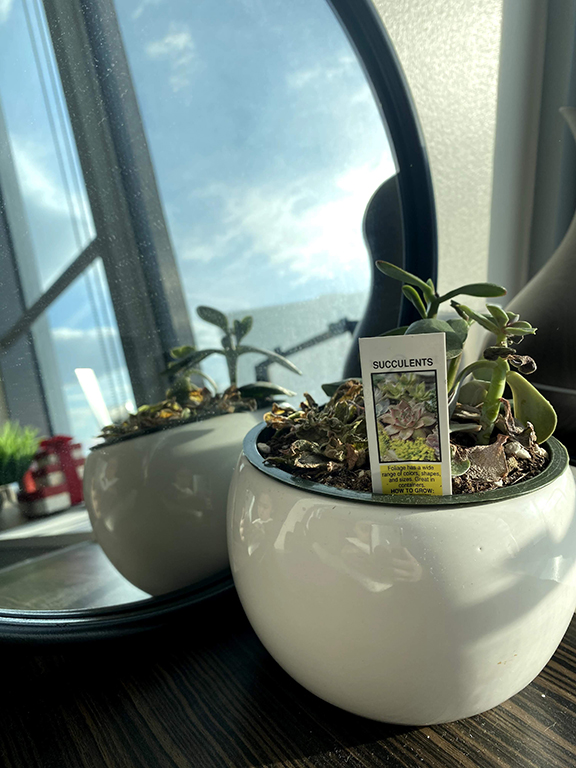
As much as I enjoy being outside in nature, I’ve never considered gardening before, which turns out to be a great way to bring the great outdoors inside. Whether we like it or not, college students spend so much of their time locked away in shoe-box sized dorms or apartments with less space than desirable. I’ve never had the greenest thumb, however after researching the benefits of having houseplants or even growing tiny succulents, I am definitely planning on becoming a “plant mom” this spring!
Having any sort of plant or fresh flowers growing in your living space could contribute more to your life than you might realize. Plants can improve sleep cycles, productivity levels, and lead to a more positive mindset. Many older adults are also encouraged to garden by physicians because it can decrease dementia risks. While we are clearly on the younger side when it comes to age, our memory retention can still benefit from this, which might be helpful with all studying. Though we may be limited by the space and time we can spend tending to house plants, there are so many different types of plants that can provide college students with many health benefits!
Aloe Vera is one of the most common types of houseplants, as they are low maintenance, grow year-round and are an amazing natural remedy for many skin conditions. The jelly-like substance found inside the leaves of this plant can be put directly on sunburns, dry skin, mosquito bites, scrapes and burns. It can be used to rejuvenate skin which is vital in the winter months and can be used to soothe skin in the summer. Instead of using manufactured products from the local pharmacy, Aloe Vera can heal skin within days without irritating the it. The plant requires very little water and just some sunlight, making it easy to take care of.
Orchids are a type of flower typically found in warmer, more tropical regions, which is why we don’t usually see them growing outside in the Northeast United States. However, they can be grown as house plants, and aside from how beautiful they are, they can to our immune systems during the winter months. Orchids increase the humidity in the air, which means that we aren’t breathing in dry air around these flowers. Dry air is what causes runny noses, sore throats and other cold-like symptoms. The chemical process orchids undergo when producing a more humid air quality is similar to what humidifiers do.
Finally are herbs, and not only are they flavorful, but they have just as many health benefits but in the form of nutrition. These types of plants can be grown in tiny pots right on your kitchen counter or on the windowsill. Herbs are actually deemed as “beginner” plants, making them perfect for college students. The best part is that you can easily add them to your food or just eat straight from the plant. There’s a long list of possible home-grown herbs, like basil, oregano and mint, to name a few. It’s hard to turn down free nutrients and antioxidants.
These low-maintenance plants don’t require much on our part except for the occasional watering and sunlight, yet the benefits are surprising. Plants are an easy and affordable decoration to any room, and with the many health benefits they provide, I’m hoping more Drexel students find their green thumbs this spring!

